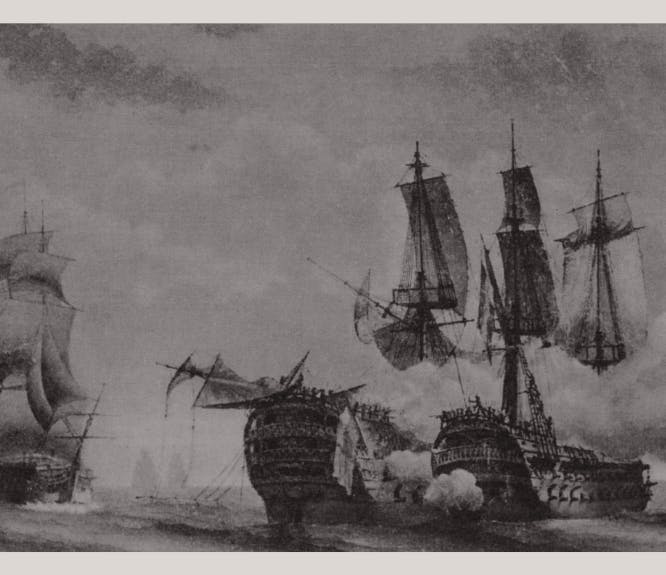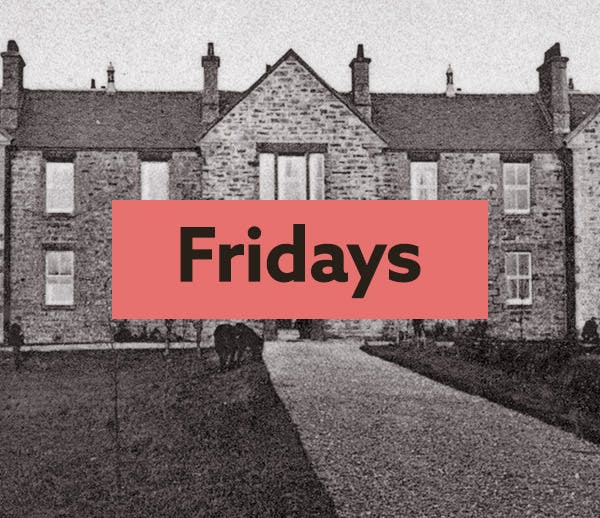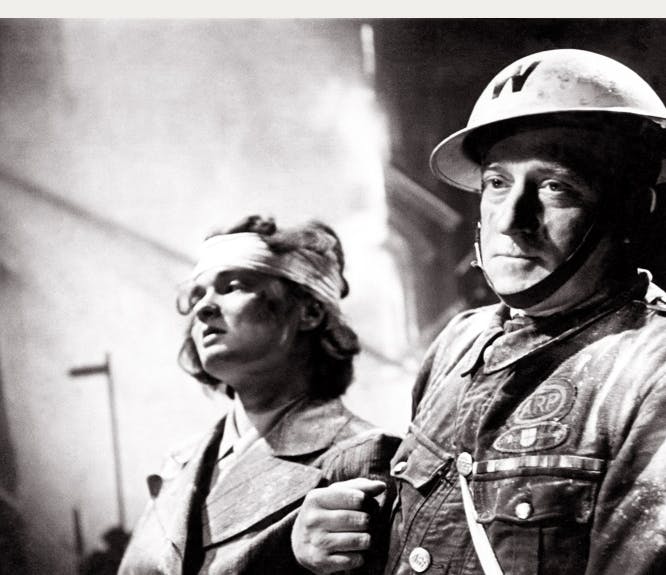Salute the service with 268,000 new military records
3-4 minute read
By Jessie Ohara | July 8, 2022
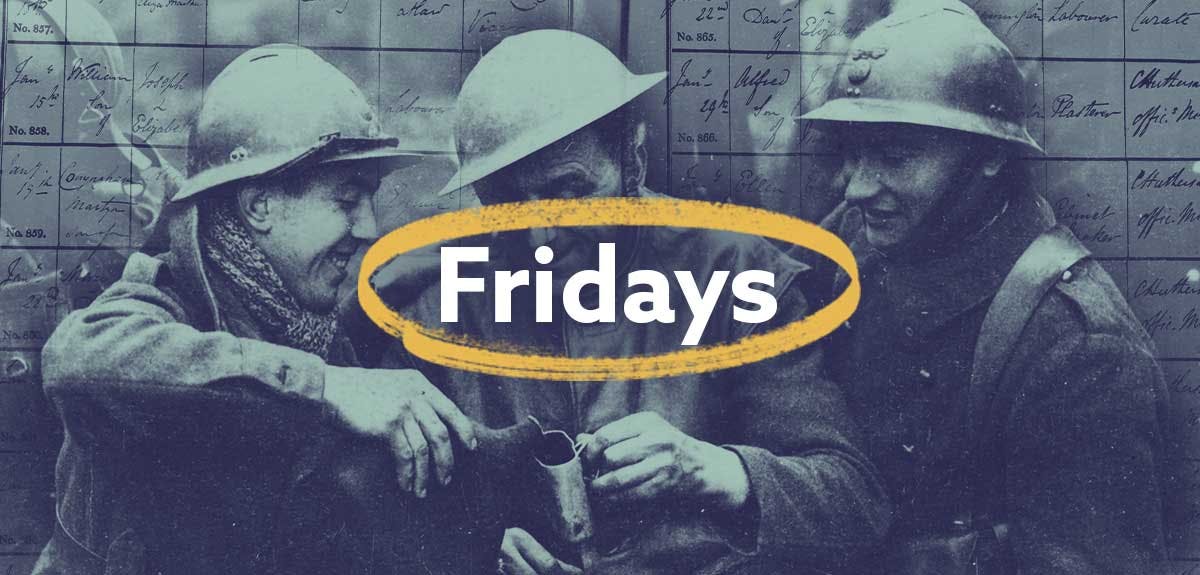
From pension records to honour rolls, here's everything that's new on Findmypast this week.
The focus is all military this week, with British Army records spanning all the way from 1661 to 1990, covering an incredible 329 years of history. That's not all though - we've also added new service and pension records from the Royal Navy and Royal Marines. Will you discover a military connection today? Read on to find out.
British Army, Recommendations for Military Honours and Awards 1935-1990
A brand new collection, these honour recommendations comprise over 79,000 records and cover 55 years from the Second World War onwards.
The majority of these records are, of course, for the British Army and dominions armies personnel. However, dotted around you'll also find some Royal Navy, Royal Marines, and Royal Air Force records, as well as decorations exchanged between British and Allied armies.
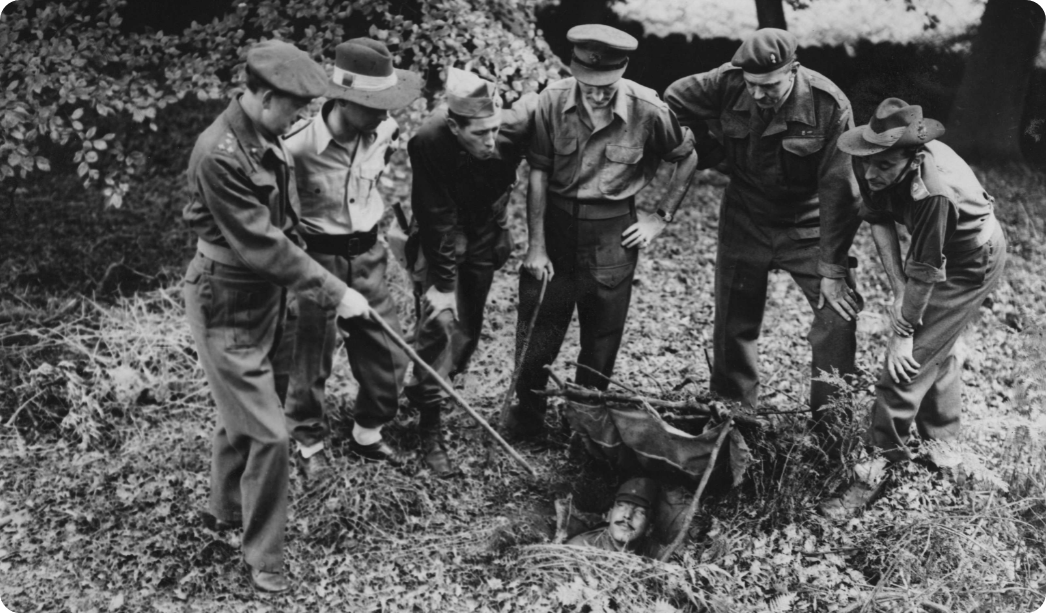
British Army soldiers during training, 1945. View this photo here.
Recommendations were given for various reasons: gallantry in the face of an enemy, meritorious service (not in the face of an enemy), distinguished service, or a combination thereof. Each transcription will give you a name, as well as rank, regiment, and corps where available. You will also find the context of the recommendation - for example, John Ralph Acton of the 1st Battalion, The Royal Warwickshire Regiment, was recommended honours for 'Gallant and Distinguished Service, Army, Korea 1950-1953'.
Britain, Campaign, Gallantry & Long Service Medals & Awards
We've added another 52,000 new records to this collection, bringing the total up to an immense 6.3 million.
These new additions are for the Long Service Good Conduct Medal, India General Service Medal Pegu (Army) 1852-1853, and India General Service Medal Pegu (Navy) 1852-1853.
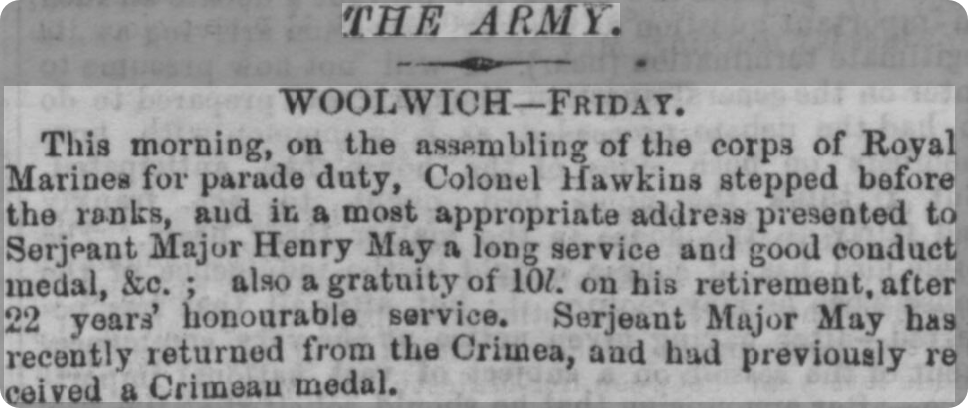
A Long Service Good Conduct medal awarded to Serjeant Major Henry May, London Evening Standard, 1856.
These records span across the British Army, Royal Air Force, Royal Navy and Royal Marines. You'll find records from both of the World Wars as well as the Peninsula War, Waterloo, and other great conflicts. The men and women in these pages all demonstrated courage and bravery in the midst of struggle, making this a poignant collection to trace your military ancestors back to.
British Royal Navy & Royal Marines Service and Pension Records, 1704-1919
We've released nearly 20,000 new additions to this collection. All of these new records are men who joined the Royal Navy in 1810.
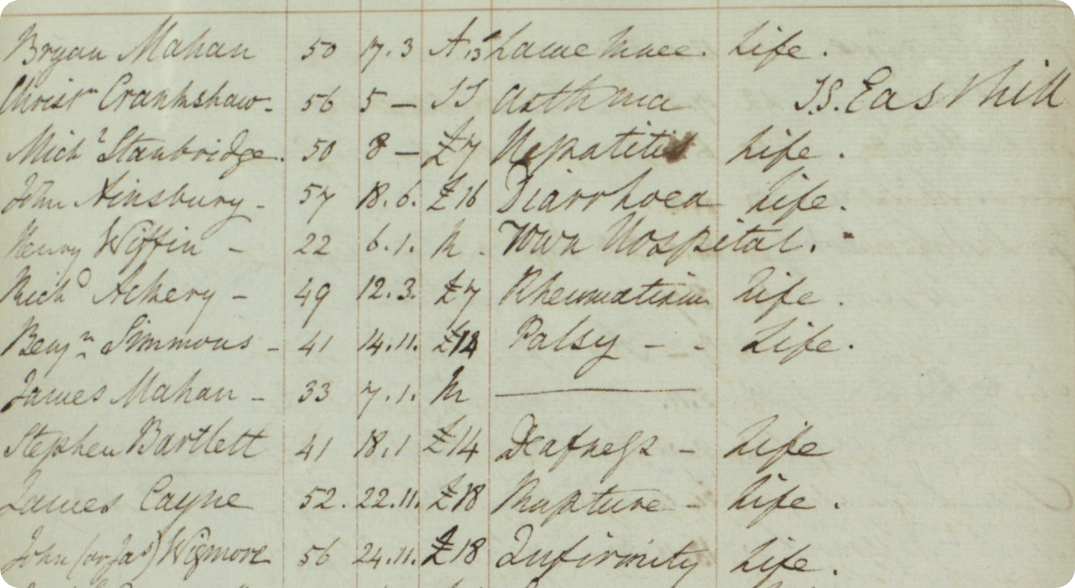
A snippet from this collection. View this record here.
The information for each record will vary, but you may find details such as the year the pension was granted, military discharge year, length of service, and more. Where available, it's also worth checking the original image in this collection, as it may contain extra comments written about your ancestor.
It is also worth noting that there were two types of pensions granted to the Royal Navy and Royal Marines - an 'in-pension', which was awarded to veterans living at the Hospital of Greenwich (the official Navy care home for veterans), and an 'out-pension', which was claimed by the veteran if they were living independently. Those that were admitted to the Greenwich care facility were under militarised standards and regulations, including wearing uniforms, and were also required to live separately from their families should they have had them. However, the facility was well-equipped: it had a library, spacious and well-ventilated wards, a separate infirmary, and a smoking terrace.
British Army Lists & Commission Registers 1661-1826
The largest addition of the week is our new British Army Lists & Commission Registers collection, with over 118,000 records. They span from 1661, when the British Army - then the English Army - was originally founded, until 1826. If you've struggled tracing your ancestor back beyond the 18th century, then make sure to check through these records.
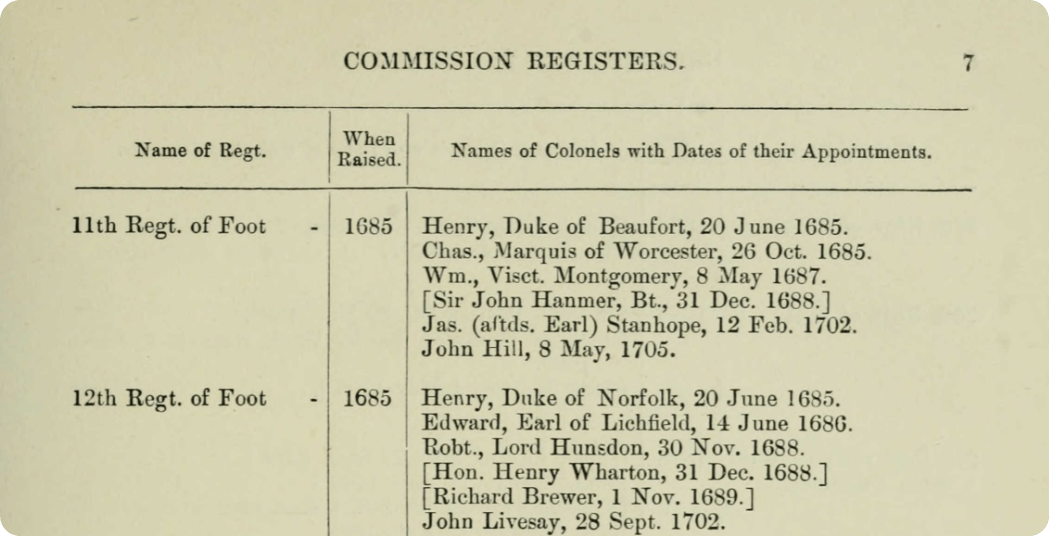
A snippet from our British Army commission registers. View this record here.
They will usually give you a full name, a regiment and rank, and an event date - which tends to be the date that the officer was commissioned. This collection also covers a significant time period in British history, following the restoration of the monarchy in 1661, all the way through the Napoleonic wars to post-Waterloo.
Neighbourhood news or paranormal papers?
Feeling spiritual? One quick dive into our new title The Spiritualist and we're certain you will be.
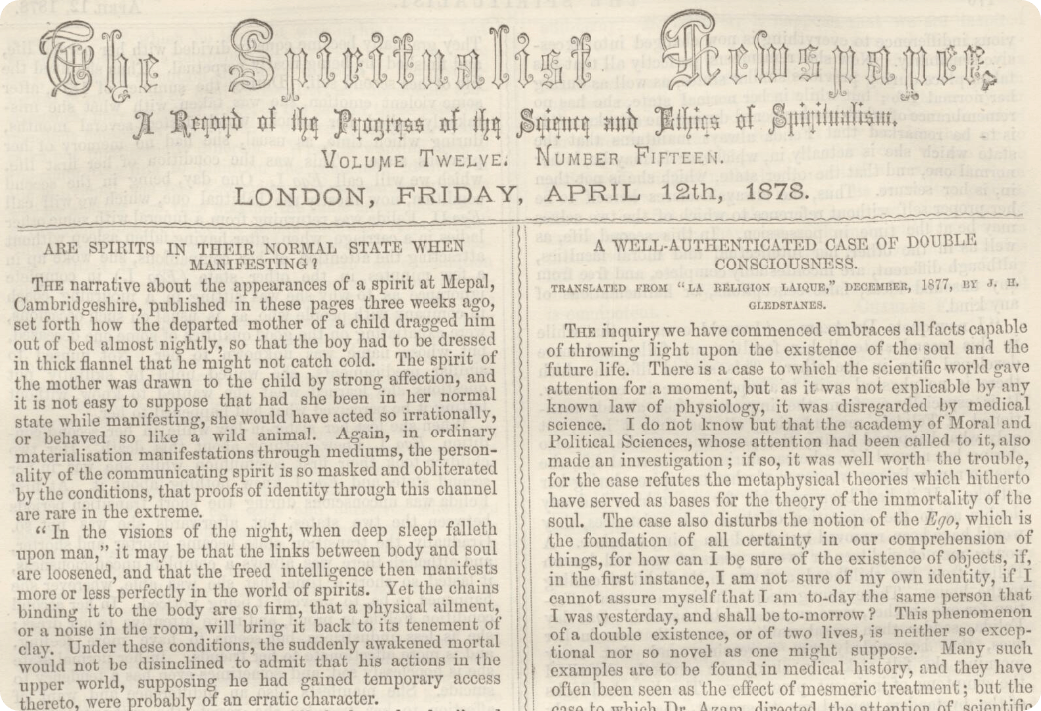
The Spiritualist, 1878.
This title focused on the Spiritualism movement that was prevalent in the Victorian era. The paper dubbed itself 'A Record of the Progress of the Science and Ethics of Spiritualism', and it broadcast what it took to be evidence - both scientific and first-hand - of a spiritual realm and paranormal phenomena. It also reported on in-person meetings held by the group, and featured a section called 'Facts for Non-Spiritualists', aimed at gently convincing the general public to convert their belief system.
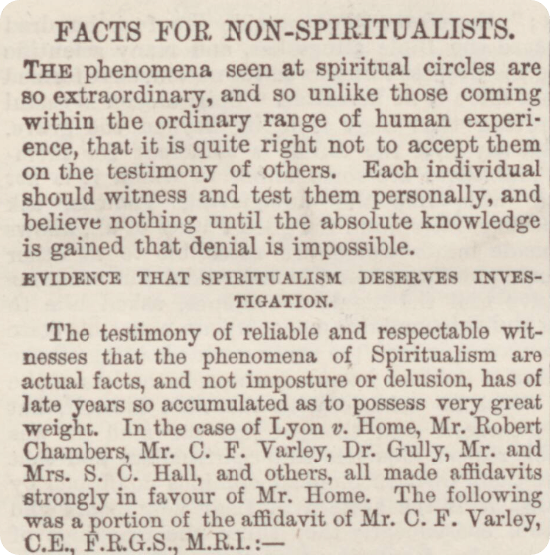
'Facts for Non-Spiritualists', 1871.
If the idea of a non-earthly plane doesn't appeal, perhaps some more local news will. We have three new titles from Bromley, one title from London, and updates to 16 existing titles. Here's a full rundown.
New titles:
- Black & White, 1891-1899, 1902, 1905
- Bromley and West Kent Telegraph, 1868-1872, 1886-1896, 1898-1913
- Bromley Chronicle, 1891-1892, 1894-1896, 1898-1921
- Bromley Journal and West Kent Herald, 1869-1885, 1887-1902, 1905-1912
- Spiritualist, 1869-1882
Updated titles:
- Airdrie & Coatbridge Advertiser, 1976
- Aldershot News, 1981
- Barbados Agricultural Reporter, 1887-1888, 1895-1910
- Cheshunt and Waltham Mercury, 1996
- Derbyshire Times, 1921
- Faversham Times and Mercury and North-East Kent Journal, 1989
- Harrow Observer, 1996
- Hounslow & Chiswick Informer, 1988
- Kensington News and West London Times, 1936
- Nantwich Chronicle, 1977
- Newcastle Daily Chronicle, 1928
- North Star (Darlington), 1920
- Nottingham Recorder, 1989
- Oldham Advertiser, 1989
- Pontypridd Observer, 1989
- Salford Advertiser, 1992
How far back have you traced your military ancestors? Show off a little and let us know by tagging us on social, @findmypast.


